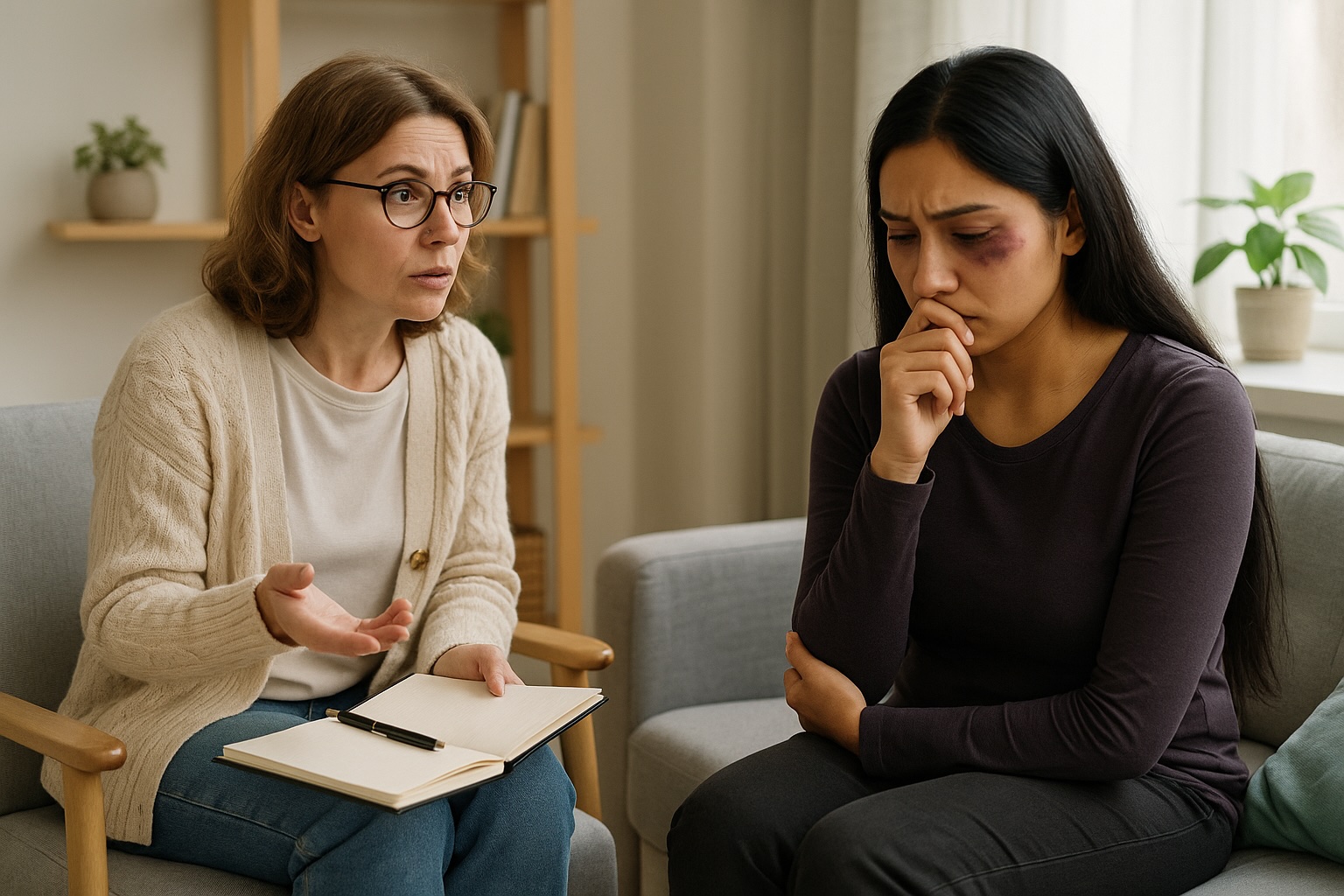Finding Counselling and Therapy for Domestic Violence Survivors in Ontario
If you’ve experienced domestic violence, emotional healing is just as important as physical safety. This guide shows how to find free or low-cost counselling and trauma therapy in Ontario.

Domestic violence doesn't end when you leave—it leaves emotional scars that take time to heal. If you're feeling overwhelmed, anxious, numb, or unsafe in your own body, you're not alone. Counselling can be a powerful tool for recovery.
Here’s how to find safe, survivor-focused therapy in Ontario.
💬 Why Counselling Helps
Helps you process trauma, grief, and self-blame
Supports survivors struggling with PTSD, anxiety, or depression
Builds coping skills to manage flashbacks, panic attacks, or emotional shutdowns
Provides a safe, non-judgmental space to speak your truth
Encourages self-compassion and empowerment
💡 Types of Counselling That Help Survivors
Trauma-informed counselling – Focuses on safety and control
Cognitive Behavioural Therapy (CBT) – Helps reframe negative thoughts
EMDR (Eye Movement Desensitization and Reprocessing) – Used for trauma and PTSD
Somatic therapy – Reconnects mind and body after violence
Group therapy or peer-led support – Builds connection with other survivors
🆓 Free or Low-Cost Counselling Services in Ontario
Assaulted Women’s Helpline (AWHL)
24/7 support, referrals to trauma-informed counsellors
📞 1-866-863-0511
Barbra Schlifer Commemorative Clinic
Free legal and counselling services for women in Toronto
Offers multilingual and cultural-specific counselling
Luke’s Place
For women leaving abuse and navigating family court
Emotional support + legal advocacy in a trauma-informed setting
Ontario Women’s Shelters
Most offer on-site or virtual counselling
Some have waitlists, but can provide interim emotional support
YWCA & Family Service Agencies
Sliding scale trauma counselling available in many cities
Often includes parenting support and housing help
Indigenous Counselling Services
Eg. Anishnawbe Health Toronto, Niinaw Nindoon
Land-based and culturally grounded therapy for Indigenous survivors
📱 How to Access Counselling Safely
Use safe phone numbers or emails when reaching out
Ask if the provider offers virtual sessions for added privacy
Let them know if you’re still living with the abuser
Some shelters or clinics can fast-track urgent cases
🔍 Other Places to Look
211 Ontario – Call or visit 211ontario.ca
Your family doctor or nurse practitioner
College of Psychologists of Ontario – Search licensed providers by trauma specialty
Post-secondary schools – Free counselling for students/faculty
Community Health Centres (CHCs) – Often provide mental health support
📌 Summary: Getting Counselling After Abuse
✅ Counselling supports healing from trauma, anxiety, depression, and grief
✅ Many Ontario services offer free or sliding-scale therapy
✅ Look for trauma-informed, culturally aware practitioners
✅ Use helplines, shelters, and clinics as entry points
✅ You deserve to heal—at your own pace, with the right support
📍 Crisis & Referral Lines
Assaulted Women’s Helpline – 1-866-863-0511 (24/7)
Talk4Healing (for Indigenous women) – 1-855-554-HEAL
211 Ontario – Dial 2-1-1 to find services near you
Hope for Wellness Helpline (Indigenous-focused) – 1-855-242-3310
Mental Health Helpline Ontario – 1-866-531-2600
Frequently Asked Questions (FAQs)
1. What is the best way to find a free therapist for domestic violence in my area?
The best way is to call 211 or visit the 211ontario.ca website. This service maintains the most comprehensive database of all government-funded and non-profit social services, including free counselling, in every community in Ontario.
2. What does it mean for a therapist to be "trauma-informed"?
A trauma-informed therapist understands that trauma can affect a person's brain, body, and behaviour. They will prioritize creating a safe and empowering environment, they will not pressure you to talk about anything you're not ready for, and they will focus on your strengths and resilience.
3. Do I need a doctor's referral to see a therapist?
For the free and low-cost services offered by community agencies and shelters, you typically do not need a doctor's referral. You can self-refer by calling the organization directly. You only need a doctor's referral if you are seeking a psychiatrist (whose services are covered by OHIP).
4. What's the difference between a therapist, a psychologist, and a psychiatrist?
- Therapist/Psychotherapist: A trained mental health professional who provides talk therapy (services are often free at non-profits or paid for out-of-pocket privately).
- Psychologist: Has a PhD and can provide therapy as well as formal diagnoses (services are paid for out-of-pocket).
- Psychiatrist: A medical doctor (MD) who can diagnose, provide therapy, and prescribe medication (services are covered by OHIP).
5. I'm afraid of being judged. What if the therapist doesn't believe me?
This is a valid fear based on your experiences. However, a trained trauma therapist's job is to believe and support you. A core principle of their work is to be non-judgmental. If you ever feel that a therapist is not believing you or is blaming you, they are not the right therapist for you, and you have every right to find a new one.
6. Are my therapy sessions confidential?
Yes. Confidentiality is a cornerstone of therapy and is protected by law. A therapist cannot share what you have told them with anyone—including your ex-partner, the police, or the courts—without your explicit written consent, except in a few very specific situations (like if there is an imminent risk of harm to you or someone else, especially a child).
